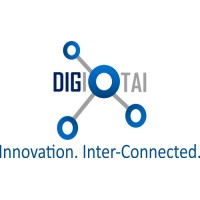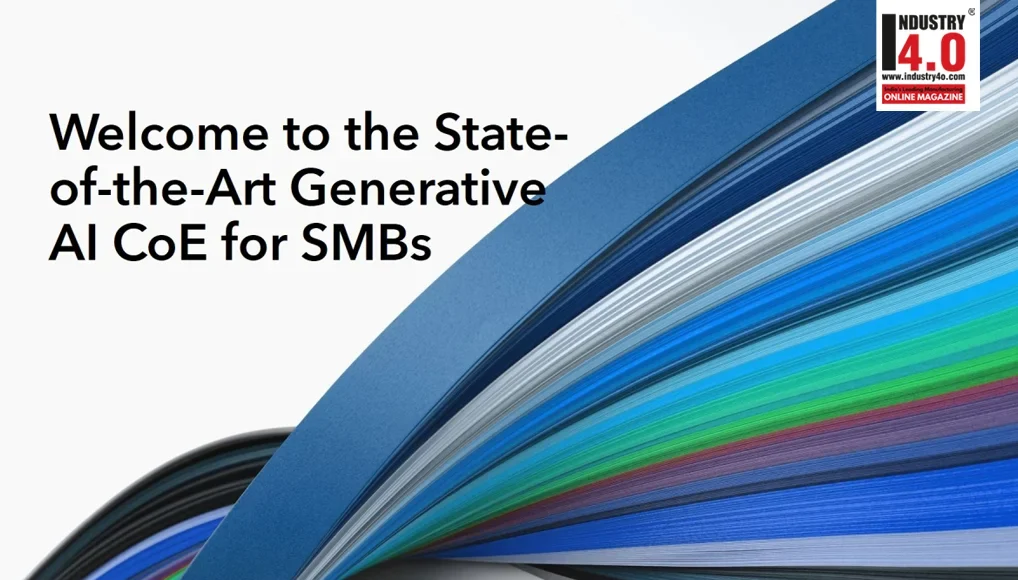Building a State-of-the-Art Generative AI Center of Excellence (CoE) for SMBs
1. Introduction
In today’s rapidly evolving business landscape, small and medium-sized businesses (SMBs) are increasingly recognizing the transformative potential of generative AI. This guide aims to provide a comprehensive roadmap for SMBs to establish a state-of-the-art Generative AI Center of Excellence (CoE) that drives strategic innovation and business transformation.
2. Understanding Generative AI
Generative AI refers to artificial intelligence systems capable of creating new content, including text, images, code, and more. Key technologies include:
- Large Language Models (LLMs)
- Generative Adversarial Networks (GANs)
- Variational Autoencoders (VAEs)
- Transformer models
- RAG
- Agents
These technologies have applications across various business functions, from content creation and customer service to product design and process optimization.
 3. The Importance of a CoE for SMBs
3. The Importance of a CoE for SMBs
A Center of Excellence (CoE) for generative AI can provide numerous benefits for SMBs:
- Centralized expertise and resources
- Standardized best practices and methodologies
- Accelerated adoption and innovation
- Risk mitigation and governance
- Scalable and replicable AI solutions
For SMBs, a CoE can level the playing field with larger competitors by fostering a culture of innovation and enabling rapid deployment of AI-driven solutions.
4. Setting Up Your Generative AI CoE
4.1 Define the Vision and Strategy
- Align the CoE with overall business objectives
- Identify key stakeholders and secure executive sponsorship
- Develop a clear mission statement and goals
4.2 Assemble the Team
- Roles to consider: AI/ML Engineers Data Scientists Business Analysts Project Managers Ethics and Compliance Specialists
- Consider a mix of in-house talent and external experts
4.3 Establish Governance Structure
- Define reporting lines and decision-making processes
- Create a steering committee for oversight
- Develop policies for AI development, deployment, and use
4.4 Invest in Infrastructure
- Choose between cloud-based and on-premises solutions
- Ensure scalability and flexibility
- Implement robust data management and security measures
4.5 Foster a Culture of Innovation
- Encourage experimentation and learning
- Provide ongoing training and development opportunities
- Celebrate successes and learn from failures
 5. Key Focus Areas for Your CoE
5. Key Focus Areas for Your CoE
5.1 Research and Development
- Stay abreast of latest generative AI advancements
- Conduct proof-of-concept projects
- Collaborate with academic institutions or AI research labs
5.2 Use Case Identification and Prioritization
- Work with business units to identify potential applications
- Assess feasibility, impact, and resource requirements
- Create a prioritized roadmap for implementation
5.3 Data Strategy and Management
- Develop data collection and preparation processes
- Ensure data quality, security, and compliance
- Implement data governance frameworks
5.4 Tool Selection and Integration
- Evaluate and select appropriate generative AI tools and platforms
- Integrate AI solutions with existing systems and workflows
- Develop custom solutions when necessary
5.5 Skills Development and Knowledge Sharing
- Create training programs for technical and non-technical staff
- Establish mentorship programs
- Organize knowledge-sharing sessions and internal hackathons
6. Implementing Generative AI Solutions
6.1 Project Management Approach
- Adopt agile methodologies for AI projects
- Implement iterative development and continuous improvement
- Ensure clear communication and stakeholder engagement
6.2 Development and Deployment Process
- Follow best practices for AI model development
- Implement rigorous testing and validation procedures
- Create standardized deployment pipelines
6.3 Change Management
- Develop change management strategies for AI adoption
- Address concerns and resistance proactively
- Provide user training and support
6.4 Scaling and Replication
- Document successful implementations and lessons learned
- Create reusable components and templates
- Establish processes for scaling solutions across the organization
7. Measuring Success and ROI
7.1 Define Key Performance Indicators (KPIs)
- Business impact metrics (e.g., revenue growth, cost savings)
- Operational metrics (e.g., process efficiency, time saved)
- Innovation metrics (e.g., new products/services developed)
7.2 Implement Monitoring and Reporting
- Develop dashboards for real-time performance tracking
- Conduct regular reviews and assessments
- Share success stories and learnings across the organization
7.3 Continuous Improvement
- Regularly reassess and refine CoE strategies and processes
- Seek feedback from stakeholders and end-users
- Benchmark against industry best practices
8. Ethical Considerations and Governance
8.1 Develop an AI Ethics Framework
- Define ethical principles for AI development and use
- Address issues such as bias, fairness, and transparency
- Ensure compliance with relevant regulations (e.g., GDPR, CCPA)
8.2 Implement Responsible AI Practices
- Conduct regular ethical impact assessments
- Implement explainable AI techniques
- Establish processes for human oversight and intervention
8.3 Data Privacy and Security
- Implement robust data protection measures
- Ensure compliance with data privacy regulations
- Conduct regular security audits and vulnerability assessments
9. Future-Proofing Your CoE
9.1 Stay Informed on AI Trends
- Attend industry conferences and workshops
- Engage with AI communities and forums
- Subscribe to relevant publications and research papers
9.2 Foster Partnerships and Collaborations
- Engage with AI startups and technology providers
- Participate in industry consortiums and standards bodies
- Collaborate with academic institutions on research projects
9.3 Prepare for Emerging Technologies
- Explore potential applications of quantum computing in AI
- Monitor developments in neuromorphic computing
- Assess the impact of edge AI and federated learning
10. Conclusion
Building a state-of-the-art Generative AI Center of Excellence is a journey that requires commitment, resources, and a clear vision. By following this guide, SMBs can establish a solid foundation for leveraging generative AI to drive innovation and business transformation. Remember that the key to success lies in continuous learning, adaptation, and a relentless focus on delivering value to your organization and customers.
About the Author :

Mr. Vijay Gunti
Chief Enterprise Data Transformation Director
DIGIOTAI Solutions

 Mr. Vijay Gunti has a strong passion for Generative AI driven by a desire to address business challenges, he also help businesses harness the full potential of AI / ML and GenAI.
Mr. Vijay Gunti has a strong passion for Generative AI driven by a desire to address business challenges, he also help businesses harness the full potential of AI / ML and GenAI.
Mr. Vijay Gunti has 2 decades of expertise in IT / AI / ML / GenAI. His strength lies in devising strategies and implementing solutions for efficiency, innovation and growth.
Whether you’re a business professional / leader seeking to expand your GenAI knowledge, a startup founder looking to enter GenAI Business & develop POC / MVP for any industry, Mr. Vijay Gunti Welcomes you to connect with him.
Mr. Vijay Gunti has experience in developing and deploying AI & GenAI solutions that have resulted in significant commercial outcomes.
Mr. Vijay Gunti specialize in generative AI strategies / GTM and have successfully implemented Various agents for Industries.
As an GenAI Specialist, Mr. Vijay Gunti has guided organizations through successful GenAI agents,resulting in substantial productivity.
Mr. Vijay Gunti is Bestowed with the following Licences & Certifications:
https://www.linkedin.com/in/vijaygunti/details/certifications/
Mr. Vijay Gunti can be contacted at :









